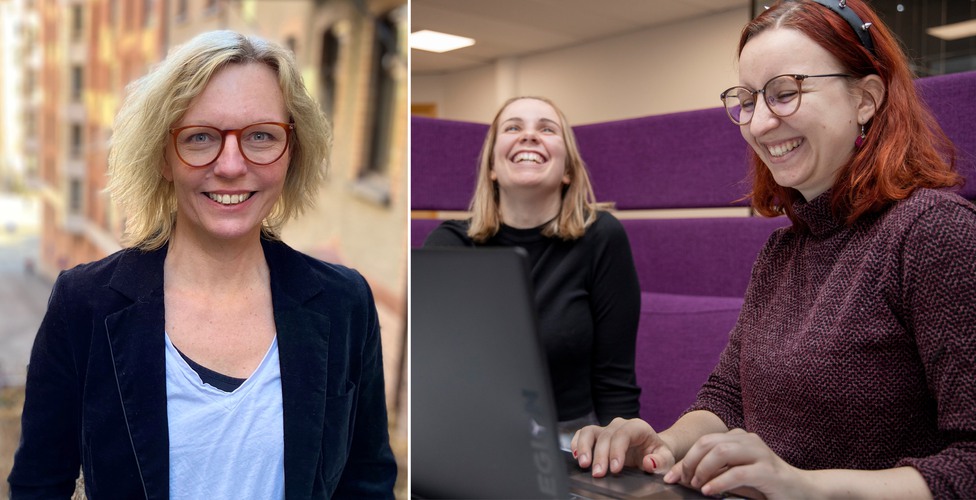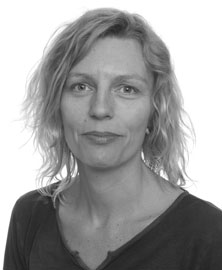The game industry is a male-dominated industry. The DONNA network, founded at the University of Skövde, works for equality in the game development educations and the game industry. The goal is a gaming culture and game industry where women and men can participate and contribute on equal terms. DONNA has proven successful and since the network was founded ten years ago, the proportion of female game development students in Skövde has increased from 10 to almost 30 percent.

Jenny Brusk (left), founder and coordinator of DONNA.
DONNA is an interest group that works with gender equality issues in game development. The group consists of students and teachers at the University of Skövde and its purpose is to increase the number of women who apply for game development educations and want to invest in a career in the industry.
The game industry has, during a long time, had difficulties in recruiting equally – women make up less than 20 percent of the workforce. The game development educations are a recruitment platform for the game industry and when DONNA started, the proportion of female students was only 10 percent.
– It goes without saying that if we do not succeed in recruiting female students to our educations, the game companies will in turn have difficulties recruiting women to their positions, says Jenny Brusk, founder and coordinator of DONNA and Senior Lecturer in Computer Science at the University of Skövde.
From 10 to 30 percent
Today, it looks completely different at the game development educations in Skövde. Since DONNA started in 2011, the proportion of female game students has increased to almost 30 percent – a figure that has been fairly stable over the past three to four years. It is also significantly higher than the national average of 19 percent. As many as 42 percent of all women who were admitted to a game development education in the autumn of 2020 study in Skövde.
– We formed DONNA with the aim of taking a holistic approach to gender equality work in game education. We want to attract more women to our educations and in the long run be able to contribute to increased gender equality in the game industry in general. To succeed, we have worked with a well-thought-out strategy that includes recruitment, study environment, education and networking. Gender equality is thus fully integrated into our operations, which is necessary both to create credibility and to be able to succeed in the long run, states Jenny Brusk.
Gender equality work gives ripple effect
Already during the first year, DONNA began a collaboration with Doris Film. It resulted in the norm-breaking game “Alex och alkemistens hemlighet” (Alex and the Alchemist's Secret), created from Doris' manifesto. This means that the majority of the development team consisted of women and that there were women in all leading positions. The collaboration created a ripple effect and together with Doris Film, DONNA has presented the project at various conferences and seminars.
– It has generated a lot of publicity that has been positive for both us, our educations and the University in general. We have been able to build up a large network over the years, not least through DONNA DAY, which is usually arranged in connection with Sweden Game Conference. The networking that takes place during DONNA DAY, where both students and professionals in the game industry participate, have been beneficial for our students both during and after their studies, says Jenny Brusk.
No time to slow down
Despite the fact that the work has come a long way, Jenny Brusk thinks it is not time to be content.
– DONNA is constantly looking for new contexts to work in and develops new methods for creating a more inclusive gaming culture. Since last autumn, for example, we have strengthened our collaboration with The Game Incubator in Science Park Skövde to increase the proportion of female game entrepreneurs, concludes Jenny Brusk.

